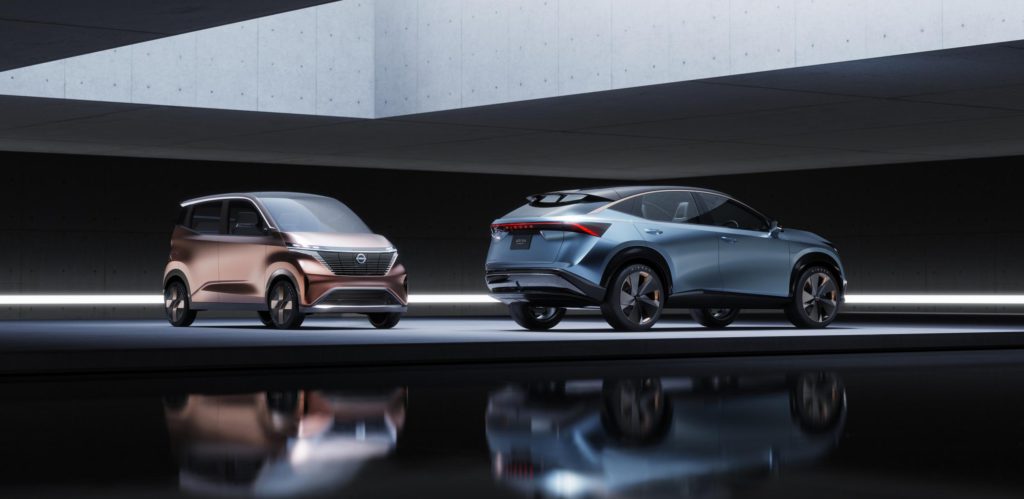Tokyo brings out the electric in domestic carmakers
24 October 2019

24 October 2019
The Tokyo Motor Show is an opportunity for Japanese carmakers to unveil their attempts to corner the electric vehicle (EV) market, with many models destined for European roads.
Zoom on
Mazda has launched the MX-30, which will go on sale in 2020 and adopts an SUV body style which helps carry the 35.5kWh battery pack. This powers a single electric motor, developing 138bhp and 195lb ft of torque.
The EV is likely to have a range of between 120 and 150 miles, similar to the new Mini Electric, although critics of the Mini have attacked its ′relatively low’ range compared to some of the latest EV models. The Mazda will be able to accept both 6.6kW home-charging and 50kW public fast-charging.
′As with all our products, our designers and engineers had a very clear goal for our first battery-electric vehicle. It had to have a stand-out design, be great to drive, something that is key part of Mazda’s DNA and makes us unique when compared with competitors, and most importantly, make a positive contribution to reducing emission across the entire life cycle of the product’ says Yasuhiro Aoyama President & CEO of Mazda Motor Europe.
′Alongside the electrification technologies we are introducing across our range, being a smaller manufacturer we focused all our efforts on creating an electric car that we anticipate will be a second car where the range of our vehicle will meet customers’ needs.’
Mazda sold a 5% stake to Toyota to allow both companies to develop EVs, as well as produce vehicles for the US market, back in 2017.
Jazz club
Honda has unveiled the all-new Jazz, featuring advanced two-motor hybrid powertrain technology as standard for the first time. The new generation of the B-segment hatchback builds on the current model with ′EV-like’ driving dynamics and advanced technology and safety features.
The new Jazz will introduce the efficiency benefits and performance of hybrid power to the mass market and accelerate Honda towards achieving its ambition that all European mainstream models will feature electrified powertrains by 2022.
The next-generation Jazz will be the first model in Honda’s European line-up to wear the new ′e:HEV’ powertrain badging. This is the first example of ′Honda e:Technology’ branding that will feature across all future electrified products.
Electric concept
Lexus unveiled its ′Lexus Electrified′ vision for an upcoming generation of electrified vehicles. Headlining this was the debut of the Lexus LF-30 Electrified Concept.
For its exterior styling, Lexus says the advanced image expected of an EV has been channelled into ′artistic qualities that result in a futuristic form,’ while the interior weaves in autonomous driving and other new technologies.
Precise electric motor control enables instantaneous adjustments to posture that are not possible with conventional vehicles. Furthermore, the LF-30 Electrified employs numerous advanced technologies with a look ahead to the year 2030 – such as a new-concept cockpit based on human-centred design philosophy and a steer-by-wire system.
Lexus plans to unveil its first battery electric vehicle (BEV) in November 2019 – broadening its response to the needs of various regions around the world, including the development of hybrids, plug-in hybrids (PHEVs), BEVs, and hydrogen fuel-cell vehicles (FCVs). Moving forward after that, Lexus plans to expand its electrified vehicle line up, launching its first Lexus PHEV and a new dedicated BEV platform early in the coming decade.
By 2025, Lexus says it will offer electrified versions of all vehicle models and is aiming for sales of electrified models to outpace those of conventional internal combustion engine vehicles.
Japanese design
Nissan kicked off a new era in design and performance with the launch of two all-electric concept cars at the 2019 Tokyo Motor Show.
The Nissan Ariya Concept and Nissan IMk concept are the latest centrepieces of Nissan Intelligent Mobility, the company’s vision for changing how vehicles are powered, driven and integrated into society.
The concepts signify Nissan’s direction for its upcoming vehicle line-up and the new possibilities for design and technology that a new EV platform allows.
′These are transformational times for the auto industry, and a new era is opening up for Nissan,’ said Kunio Nakaguro, Nissan’s executive vice president of global research and development. ′We have been among the fastest to develop EVs and highly intelligent driving assistance technologies, and, as shown by our two new concept vehicles, we intend to continue our role as a global pioneer.’
The Ariya Concept showcases Nissan’s new design direction, called Timeless Japanese Futurism. The new design language combines new possibilities incorporating the company’s 100% EV platform with traditional Japanese minimalist themes.
The Nissan IMk concept offers advanced Nissan Intelligent Mobility technology and a powerful EV drivetrain in a compact, agile body. The IMk concept’s sleek appearance represents Nissan’s future design language, developed for the coming automotive era.